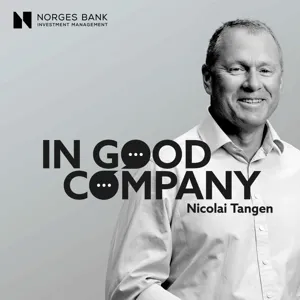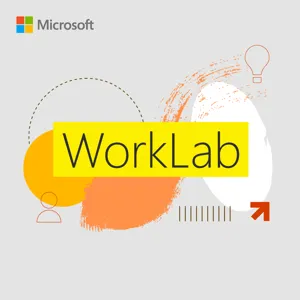Podcast Summary
Navigating Microsoft through its fourth platform shift: CEO Satya Nadella emphasizes the importance of adaptability and innovation in the tech industry, as Microsoft works to stay relevant and impact other industries beyond narrow tech spend.
Learning from Satya Nadella's interview is the importance of adaptability and innovation in the tech industry. Nadella, the CEO of Microsoft and the most valuable company in the world, emphasized that there's no such thing as a franchise value in their business. This means that every day, companies must work to stay relevant and innovate, even during major platform shifts. He's currently navigating Microsoft through its fourth platform shift, which comes with both excitement and nervousness. Nadella also discussed the potential for technology to drive economic growth beyond the narrowly defined tech spend. He suggested that the real opportunity lies in how technology can impact other industries, such as healthcare and material science, and make the overall economic pie bigger. This perspective highlights the importance of considering technology's broader impact on society and the economy.
Microsoft and OpenAI partnership: Competing in the AI ecosystem: Microsoft's strategic partnership with OpenAI aims to bring more competition to the AI market, enhance its infrastructure, and position itself as a major player within the next 3 to 5 years.
Microsoft's partnership with OpenAI was a strategic move to innovate and compete in the AI ecosystem, even before it was a conventional wisdom. Microsoft, with its long history in AI research, saw the potential in OpenAI's unique approach and sought a partnership to bring more competition to the market dominated by Google. Microsoft aims to have the best AI infrastructure, including partnerships with NVIDIA, AMD, and developing its own silicon and system architecture for Azure. Additionally, Microsoft intends to have the entire data tier to support advanced AI capabilities, such as retrieval augmented generation, and to serve the needs of various AI projects like OpenAI, Mistral, and PHY. With these efforts, Microsoft aspires to be a major player in the AI ecosystem within the next 3 to 5 years. The partnership between Microsoft and OpenAI has brought more competition to the field, potentially leading to significant advancements and innovations in AI technology.
Microsoft's full stack approach to AI innovation: Microsoft is focusing on data and app layer innovations to drive AI advancements, building on previous tech breakthroughs, and anticipating the AI age's expansion beyond cognitive work.
Microsoft is approaching the ongoing technological shift towards AI as a full stack opportunity, focusing on innovation at each layer: the data layer, where they will address issues like data throughput and innovation with partners; and the app layer, where they have already introduced Copilots for various applications in GitHub, Microsoft 365, and other domains. This approach builds on previous technological breakthroughs, such as PCs, the web, and mobile cloud, each of which paved the way for the next. The AI age, currently in its second year, is expected to go beyond cognitive work to accelerate science and be embodied in the real world. The availability of chips, while important for scaling, is just one aspect of the equation, and the future of AI development depends on continued advances in both training and inference capabilities.
Stay open to advancements in AI architecture and compute capacity: Focus on adding unique value, remain open to new technologies, and contribute positively to host nations to thrive in the AI landscape
While we can't predict the future of AI model architecture or the role of compute capacity, we should remain open to the possibility of both. Small language models have shown significant capabilities with less compute, but there's also potential for a game-changing breakthrough that might not require the same resources. For countries looking to develop their own models, it's essential to focus on adding unique value rather than trying to build everything from scratch. Technology companies, including those in the AI field, must earn the permission to operate in different countries by contributing to local progress. Geopolitics will always be a factor, and tech companies must strive to make a positive impact on their host nations. In his book "Refresh," the speaker discusses three areas essential for individuals and organizations to thrive in the ever-changing technological landscape: learning, speed, and energy. These themes can be applied to the development and implementation of AI models as well.
Exploring the Intersection of AI, Quantum Computing, and Mixed Reality: AI can emulate quantum simulators, quantum computing can accelerate AI capabilities, and mixed reality can expand AI applications beyond traditional devices. These technologies have the potential to lead to breakthroughs in various fields.
The intersection of AI, quantum computing, and mixed reality presents significant opportunities for scientific advancements and innovative technologies. AI can serve as an emulator for quantum simulators, allowing for a more manageable search space in the quest for scientific discoveries. Quantum computing, in turn, can accelerate AI capabilities and enable the simulation of complex systems like cells and molecules. Mixed reality, or embodied AI, can expand the aperture of AI applications beyond traditional devices and form factors. Microsoft, with its investments in quantum computing, AI, and gaming, is well-positioned to explore these opportunities. Gaming, as a consumer entertainment category, can benefit from AI in discovering bugs and improving overall gaming experiences. The synergy between these technologies can lead to breakthroughs in various fields, from material science to biology and beyond.
Learning from Past Experiences and Fostering a Growth Mindset: Successful leaders recognize past successes and failures, embrace a growth mindset, and foster authenticity and human connection to drive innovation and growth in their organizations.
Successful leadership involves recognizing and learning from past successes and failures, and fostering a growth mindset within an organization. Satya Nadella, CEO of Microsoft, shares his experience of growing up at Microsoft and the importance of self-reflection in driving change. He emphasizes the importance of being a "learn it all" versus a "know it all," and how this mindset can lead to innovation and growth, even in large corporations. He also highlights the need for authenticity and human connection in implementing new ideas, rather than relying on corporate speak. By acknowledging mistakes and continuing to learn, organizations can avoid becoming complacent and instead, stay relevant and competitive.
Microsoft's growth mindset culture: Personal growth and empathy: Microsoft's growth mindset culture prioritizes personal growth and empathy, allowing employees to bring their authentic selves and unique perspectives to work, understand and connect with customers' needs, and harness the power of empathy to drive innovation and create meaningful connections.
The growth mindset culture at Microsoft, led by Satya Nadella, is not just a corporate initiative but a deeply meaningful and human practice. It's about personal growth, both in and outside of work, and it's what allows Microsoft employees to bring their authentic selves and unique perspectives to their jobs. Empathy, another essential component of this culture, is the root of all innovation. By understanding and connecting with customers' unmet and unarticulated needs, Microsoft is able to create solutions that truly make a difference. Empathy is not just a soft skill, but a natural human ability that can be harnessed to drive innovation and create meaningful connections. It's something that can be practiced and developed every day, through personal experiences and interactions with others. The power of empathy was first discovered by the speaker through the experience of raising a child with cerebral palsy, and it's a skill that has the potential to change lives both personally and professionally.
Empathy and execution go hand in hand: Identify weaknesses, learn from others, and focus on continuous learning for effective leadership and growth
Empathy and execution are not contradictory but complementary in both life and business. Personal experiences, including challenging ones, can deepen empathy and make us better managers, coworkers, and innovators. Accountability and great execution are necessary for creating profitable solutions to people and planet's challenges. So, instead of focusing on what we're good at, we should identify our weaknesses and learn from others to become effective leaders. This mindset of continuous learning, as shared by the speaker and Bill Gates, can lead to significant growth and success.
The importance of a growth mindset for individual and organizational success: A growth mindset, characterized by humility, confidence, and continuous learning, is crucial for personal and professional progress. Fostering a culture of learning and humility can lead to great achievements, while hubris can cause downfall.
A growth mindset, characterized by humility, confidence, and continuous learning, is essential for individual and organizational success. Both Bill Gates and Steve Jobs embodied this mindset, and it's important to install it in organizations by fostering humility, confidence, and a culture of learning. This can lead to great progress, while hubris can lead to downfall. I was inspired by my father's approach to life, which involved meeting new people, generating ideas, and completing tasks. I also found a deep connection between coding and poetry, as both involve compressing complex ideas into succinct forms. I discovered my love for Urdu poetry late in life but have since grown to appreciate its ability to describe the world in a compact and meaningful way.
Strive for your best work every day: Define your job broadly, approach it with energy and rigor, focus on the present, and do your best work to increase satisfaction and chances for advancement
No matter what job you have or what stage of your career you're at, you should strive to do your best work every day. Satya Nadella, the CEO of Microsoft, shared this advice during a conversation about the power of the human mind to compress thoughts, whether it's through code or poetry. He emphasized that he never felt the need to wait for a promotion to feel fulfilled or satisfied in his roles at Microsoft. Instead, he encourages young people to define their jobs broadly and approach them with energy and rigor. While it's important to have ambition and strive for advancement, the focus should be on the present and making the most of the opportunities at hand. By doing your best work every day, you'll not only be more satisfied in the moment, but you'll also increase your chances of landing the next job or promotion.






